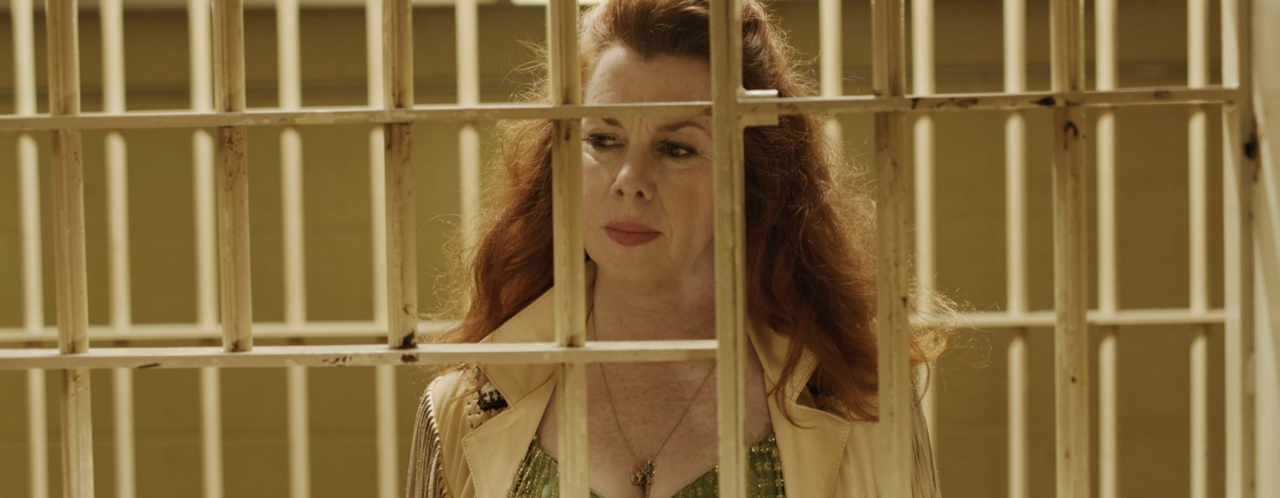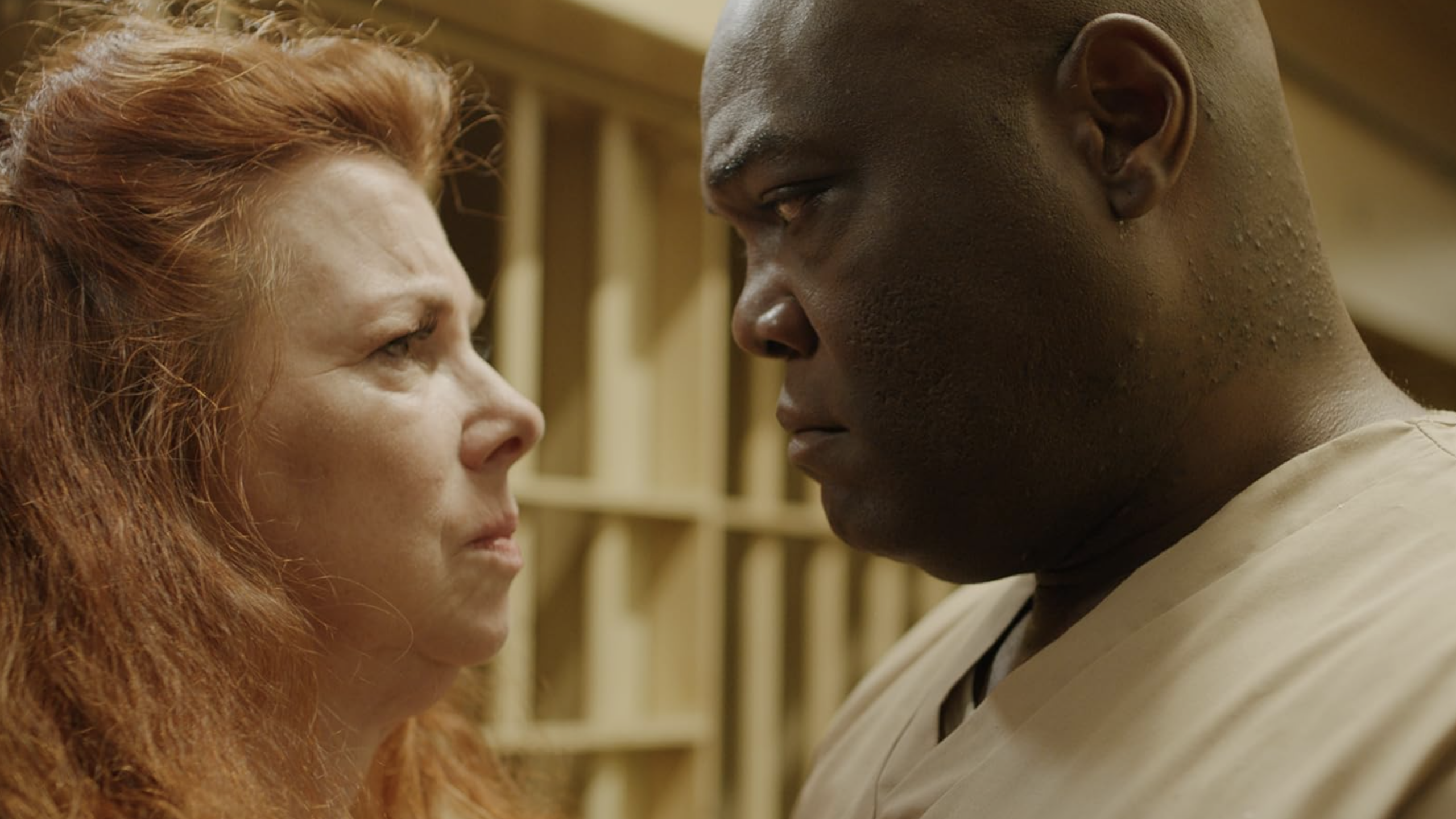At the New York City premiere of Shelter in Solitude, Siobhan Fallon Hogan—the film’s co-producer, writer, and lead actress—blazed into the theater surrounded by young family friends who gave the Hogans a lift to the city after their car caught fire at a gas station. “It was the devil!” she said to me—all the while lighting up the room with the kind of crackling Irish ebullience that puts demons to flight.
Even if you don’t know Hogan’s name, chances are you’ll recognize her. She has made countless film and TV appearances over the years, from Mrs. “Sugar Water” Edgar in Men in Black, to Dorothy Harris the bus driver in Forrest Gump, to Elaine’s former roommate Tina Robbins on Seinfeld. She even appeared on Saturday Night Live for the 1991–1992 season alongside the likes of Chris Farley, Mike Myers, and Adam Sandler.
But this actress, comedian, and passionate Catholic is now striking out in a new direction—with her husband and three children in tow—as a writer and producer. After putting out Rushed in 2021, the family’s Emerald Caz Productions is back with a second film, playing at AMC and Regal theaters, about two lonely souls communing in an unlikely place: between the prison bars of death row in a small southern town.
In all this ordinariness, there is the suggestion of grace operating beneath the surface, and even of the hope that all the pieces do fit together in the end.
Hogan plays Val, a washed-up country singer whose watering hole (plastered with posters from her heyday) is shutting down at the height of the pandemic. Meanwhile, her brother Dwayne, the local prison warden (Robert Patrick of Terminator 2 fame), posts an open position for a guard to watch over the lone inmate on death row: a stoic, taciturn man called Jackson (Peter Macon) who will be executed in just a few short days. Hard up for cash, Val shows up for the job, and her brother reluctantly agrees. The garish, garrulous Val—armed with the gift of gab and a heart of gold—is now stationed outside Jackson’s cell, and the man has nowhere to run. He responds to all of her overtures, at first, with a defiant silence, but gradually, the barriers begin to fall, and the two begin to encounter each other in their raw humanity.
The set-up alone—never mind the imagery, like that long corridor with a flickering light—will inevitably bring to mind other classics of this genre, The Green Mile and Dead Man Walking chief among them. Shelter in Solitude seems well aware of these influences, but responds with a unique focus on small moments, and, as Hogan remarked after the film, “little acts”—evidence of the influence of her devotion to the Little Flower. Tonally, it allows itself to be pulled in multiple directions without committing to one: the funny moments are truly funny (Hogan lights up the screen with her energy and wit) and the dark moments are truly dark (especially the flashback to Jackson’s crime). But this is neither a rollicking dark comedy nor a sweeping crime drama; it is a more humble glimpse at two ordinary people momentarily crossing paths in a world where the pieces often don’t seem to fit together.

Val brings to Jackson not only a vibrant presence but also a compassionate heart: a willingness, as she puts it, to “serve” him as best as she can in the little time he has left. “I am a man,” Jackson reminds himself with a note on the wall; and Valerie intends to treat him that way, honoring his particularity and preciousness. In one beautiful scene, Val, still trying desperately to draw Jackson out of his shell, brings him a few freshly baked cookies, and his reaction is telling: this small gesture of warmth and kindness in this drab, cramped cell has touched his soul in a profound way.
This prison ministry of service—she even parks in the spot reserved for clergy—was decidedly not part of the job description; instead, it overflows out of Val’s deep Catholic faith. She and her brother are far from prim and proper Catholics—profanity, booze, and even a mean right hook are part of the package—but they unassumingly wear their faith on their sleeves. Images and statues of Mary surround them, and Val wakes up and goes to sleep holding a rosary and whispering heartfelt petitions into her pillow—peppered though they are with the occasional cuss. Thus, as Val cautiously steps into Jackson’s world, she not only brings him food, but soul food: words of consolation from the Gospels, and even a playful singing of a modern Catholic hymn to test death row’s acoustics.

As this friendship leads Val to Jackson’s estranged daughter, we are tempted at times to think some big revelation, some big turn of events is on its way. But it never arrives. Things unfold more or less the way they tend to: the clunky and painful turning of the wheels of justice, the mysterious depths of individual lives hidden from view. Aside from a few suggestive glimmers, Jackson’s own journey remains obscure; but what is clear, right up to the closing frames, is Val’s faith-filled presence to him. In all this ordinariness, there is the suggestion of grace operating beneath the surface, and even of the hope that all the pieces do fit together in the end. “All things cover some mystery,” Pascal wrote. “All things have veils that cover God.”
The song over the closing credits—Hogan’s catching rendition of a song called “Soul in These Boots”—bears witness to this spiritual instinct guiding the film: “Started walking my own way / And Jesus that’s where I lost you / Wearing out the soul in these boots.” Shelter in Solitude is an intriguing glimpse into a brief encounter on life’s way before death, where kindness and withholding judgment triumph. But more profoundly, it is a story of the possibility of forgiveness and redemption, even for those seemingly least worthy of them.
In reflecting on the film after the credits rolled, Hogan—like Val—wore her faith on her sleeve. She spoke of the “divine intervention” in the film’s conception and creation (“It’s all because of God”) and of the deep prayer that went into its cultivation (“I went to Holy Mass every day”). She even reminisced, when asked about her comic inspirations, of going to church with Chris Farley every Sunday, imitating how he would pray—throwing his hands up in flustered embarrassment like the tax collector in Jesus’ parable. But unlike Val in her small town, Hogan’s presence in the heart of bustling New York seems like a new beginning—a promising sign of more faith-filled encounters to come.
